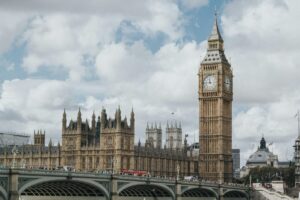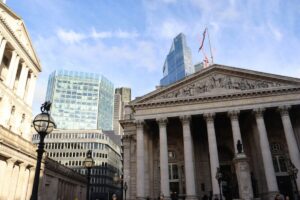The three themes are: (1) Build back greener (2) Build back stronger (3) Build back inclusively
To underline its commitment to ESG and to increase transparency around its own operations, this week Fidelity has launched its inaugural Task Force on Climate-related Financial Disclosures (TCFD) annual report
Without a doubt, 2020 has turned out to be a pivotal year for sustainability in finance and in broader society. The coronavirus brought Environmental, Social and Governance (ESG) issues to the fore with unexpected urgency. As we consider what the post-pandemic future will look like, Fidelity International (Fidelity) highlights three key ESG themes for 2021, discussing their global relevance, and outlining how the asset manager is planning its own stewardship engagement around these themes.
- Build back greener: Valuing our natural ecosystems
“Nature loss is a fat-tail risk like the 2008 asset price bubble or the 2020 Covid-19 pandemic: it cannot be seen with a linear world view, but once triggered can have far greater than average implications” — this is according to a 2020 World Economic Forum (WEF) report.
The origins of this pandemic, rooted in continuing expansion of human activity into natural habitats, have brought the consequences of nature loss into sharp relief. However, it is increasingly clear that these are not just one-off acute events and that the loss of natural capital (and biodiversity of that capital) is a systemic risk for investors and society alike.
In this respect, biodiversity loss is becoming recognised as critical to the environmental agenda as climate change, and indeed, the inter-relationships and negative feedback loops generated between the two forces are accelerating the scale of the planetary crisis we face.
Key figures
- If no action is taken to cut greenhouse gas emissions, climate change related damage costs will climb to €31trn per year, according to the latest report by Carbon Disclosure Project (CDP) and University College London (UCL).
- The destruction of natural capital is an ecological and financial disaster, with half of the world’s GDP (US$44 trillion) “moderately or highly linked” to its availability, according to the WEF
- Human activity has already severely altered 75% of terrestrial and 66% of marine environments, threatening the survival of around 25% of animal and plant species, according to the Intergovernmental Sciences-Policy Platform on Biodiversity and Ecosystem Services (IPBES)
Climate change will return to the top of the political agenda in 2021, fortified by the European Green Deal and US President-Elect Joe Biden’s climate priorities. Expectations are high about what could be achieved to speed up decarbonisation at the UN climate change summit in late 2021 (COP 26). Announcements this year from China, Japan and South Korea on net-zero emission targets speak to the growing role that Asia will play in setting the climate change agenda.
Businesses have become very aware of the concrete, measurable financial risks posed by these environmental issues. Initiatives like the Taskforce for Climate-related Financial Disclosures (TCFD) framework are vital in providing a platform for companies to quantify, disclose and assess climate-related risks. Firms now need to do the same to systematically integrate nature-based risks.
“Biodiversity loss and climate change present critical financial and economic risks to society and to the long-term investment returns we are able to generate for our clients.” said Jenn-Hui Tan, global head of Stewardship and Sustainable Investing at Fidelity International. “Investors have a key role to play in protecting biodiversity and creating positive biodiversity outcomes. While good progress has been made in our understanding around the pricing and integration of climate change risk, it is now incumbent on us to learn to price natural capital correctly – not simply as an input in a manufacturing process, but in a way which recognises and preserves its value for future generations. That is the challenge for the financial industry over the next few years.”
| Fidelity International’s focus
In 2021, Fidelity will continue working with companies to improve climate-related disclosures. An additional focus will be on collaborating with industry peers to improve how the we price natural capital.
|
- Build back stronger: Narrowing the social divide
In 2021, there will be increased pressure on companies to take greater accountability not only for the welfare of their workforce, but for the community at large, and for the individuals in their complex supply chains. This in large part is due to the very severe effect that the pandemic has had on people’s livelihoods all round the world and the disproportionate impact it has had on the most vulnerable yet essential workers and members of our society, be they women, children or ethnic minorities.
Key figures
- More than 80% of the global workforce of 3.3 billion has been affected by full or partial workplace closures as a result of Covid-19, according to the International Trade Union Confederation (ITUC).
- Globally, there was an estimated 17.3% loss of total working-hours in the second quarter of 2020, compared with 2Q19, according to the International Labour Organization (ILO).
- Based on significantly reduced working hours, the ILO estimates global labour income losses of 10.7% during the first three quarters of 2020, which amounts to US$3.5 trillion.
- UN Women predicts that due to the pandemic by 2021, for every 100 men aged 25 to 34 living in extreme poverty, there will be 118 women, a gap that is expected to increase to 121 women per 100 men by 2030.
“Social issues will be a key component of sustainable post-pandemic recovery plans,” said Tan.
“As governments run out of fiscal stimulus in 2021, the onus to support workers during these challenging times will fall on businesses.”
“Women in particular have been disproportionately affected by the pandemic in terms of loss of income. We will be looking to companies to make genuine efforts in supporting their female workforce.”
All this comes back to the fundamentals of good governance. As part of their broader governance responsibilities, companies will have to consider how best to enable society – economies, communities and the vulnerable – to recover from the coronavirus in more sustainably oriented ways.
| Fidelity International’s focus
In 2021 Fidelity will be monitoring how companies account for social factors in their post-pandemic recovery plans, including factors such as employee welfare, and the welfare of those in supply chains.
|
- Build back inclusively: A focus on digital ethics
The pandemic has turned digital tools into a lifeline for people across the world, allowing many to study and work from the safety of their home. But just as digital tools become a lifeline for some, they can also further exacerbate social divides.
Key figures
- Approximately 50% of the global population is estimated to be without access to the internet, according to the International Telecommunications Union (ITU), while a greater proportion, often in rural and remote areas, don’t have broadband coverage or online government services
- 75% of people using digital channels for the first time indicate that they will continue to use them when things return to ‘normal’, according to a study by McKinsey
- According to research by the UK government, 82% of job vacancies in the UK already require digital skills
In 2021, the use of digital channels will likely increase, bringing into focus issues of digital ethics and inclusion. Digital ethics refers to the ethical digital transformation of society, including topics such as data privacy, cybersecurity, online welfare, propagation of misinformation and ethical AI design. It also refers to an emerging topic: digital inclusion. This is not restricted to tech companies and specifically refers to the access, skills, use and benefits related to digital technologies.
“Current digital disparities are extremely worrying,” says Tan. “Digital tools have been vital in helping millions of people weather the pandemic and their accessibility is likely to become a leading indicator of educational, health and societal outcomes in the future. Governments will need to make digital accessibility an absolute priority in 2021 and beyond to ensure no one is left behind on the path of digital evolution. Technology companies must be encouraged to adopt self-regulation in recognition of their often cross-border responsibilities and to show willingness to adapt business practices to minimise societal harm and create positive outcomes for their user or customer base. Investors have to play their part in highlighting these issues of digital ethics and inclusion, to ensure long-term sustainability for everyone.”
| Fidelity International’s focus
In 2021 Fidelity will continue to engage companies around digital ethics issues, as these are key factors both for the near-term valuations as well as long-term sustainability of our tech holdings.
|











